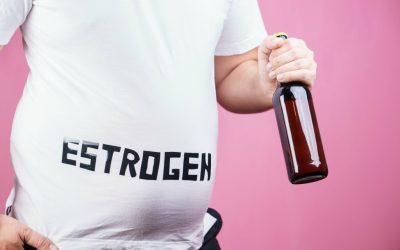Content
The repair stage of recovery was about catching up, and the growth stage is about moving forward. Clinical experience has shown that this stage usually starts 3 to 5 years after individuals have stopped using drugs or alcohol and is a lifetime path.
Relapse Less Likely With Orca-T vs Standard Transplant in … – Targeted Oncology
Relapse Less Likely With Orca-T vs Standard Transplant in ….
Posted: Sat, 01 Oct 2022 07:00:00 GMT [source]
Remove types of relapse triggers substances from your home, stay away from bars, and steer clear of situations where you know drugs or alcohol will be present. Addicts must lie about getting their drug, hiding the drug, denying the consequences, and planning their next relapse. Clinical experience shows that when clients feel they cannot be completely honest, it is a sign of emotional relapse. It is often said that recovering individuals are as sick as their secrets. One of the challenges of therapy is to help clients practice telling the truth and practice admitting when they have misspoken and quickly correcting it. There are many risks to recovery at this stage, including physical cravings, poor self-care, wanting to use just one more time, and struggling with whether one has an addiction. Clients are often eager to make big external changes in early recovery, such as changing jobs or ending a relationship.
How Treatment And Support Groups Reduce Relapse Rates
They want to prove that they have control over their addiction and they are not as unhealthy as people think. Joining a self-help group has been shown to significantly increase the chances of long-term recovery. The combination of a substance abuse program and self-help group is the most effective . The tasks of this stage are similar to the tasks that non-addicts face in everyday life. When non-addicts do not develop healthy life skills, the consequence is that they may be unhappy in life. When recovering individuals do not develop healthy life skills, the consequence is that they also may be unhappy in life, but that can lead to relapse.
Substance abuse triggers are internal and external cues that cause a person in recovery to crave drugs and often relapse or lapse. Since each stage has distinct features, it makes substance abuse relapse easier to identify at every stage and therefore easier to stop. With a sound relapse prevention plan, you will have coping mechanisms and contingency plans for triggers and for relapse warning signs. Relapse is a return to drug and alcohol use after you had previously broken free of actively using. Even after a person stops using drugs or alcohol, they can make mistakes, experience feelings of guilt and failure, or experience stressful situations that lead them to begin using again.
Learn From Setbacks
A whiff of cigarette smoke, watching people sip cocktails in a bar or restaurant, or a couple locked in an erotic embrace are reminders that seem to be everywhere in the early stages of quitting. People who struggle with addiction need effective ways of tolerating, managing, and making sense of the negative feelings encountered in daily life. Alcohol, drugs, or addictive behaviors used to provide temporary relief from those feelings, but you can’t rely on them anymore. Cues can be anything from triggers like smells or people, places or times of day when you used addictive substances. If you tried to quit by yourself in the past and failed, take note of what may have led you back to using so that you can avoid these cues in the future.
- 3) Clients feel they are not learning anything new at self-help meetings and begin to go less frequently.
- During treatment, relapse prevention programs may be incorporated as part of the overall treatment plan.
- A recovering person should have their Relapse Radar on at all times in order to see it coming.
- Most recovering people learn that in order for their recovery to continue, they must constantly assess themselves.
Working to get to the point of recovery is difficult work and you don’t want to lose ground, if at all possible. So relapse awareness work is a fundamental part of treatment in-order to ensure you maintain your gains in treatment and your new life. Abstinence guarantees successful recovery Abstinence and lifestyle change is the first step necessary to maintain recovery. If abstinence is all that is attained, dry drunk syndrome or PAWS is very likely to take hold. Euphoric recallor using memories that selectively filter out the negative consequences of your using are potentially very dangerous.
10. Places and Situations Where Drugs Are Available
Denied users invariably make a secret deal with themselves that at some point they will try using again. Important milestones such as recovery anniversaries are often seen as reasons to use. Alternatively, once a milestone is reached, individuals feel they have recovered enough that they can determine when and how to use safely.

Although these numbers may be discouraging, the important thing to remember is that https://ecosoberhouse.com/ is not a sign that addiction treatment failed. Drug detox, rehab, and other forms of treatment are not cures for addiction, and substance use disorders cannot be cured.
